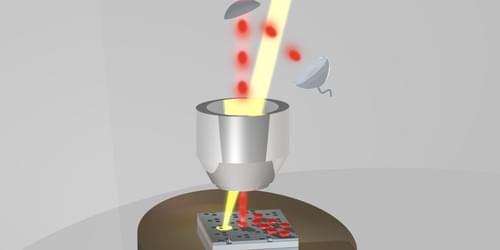A new thermometer allows thermal mapping of surfaces with microscale resolution and enables studies of heat flow through materials at cryogenic temperatures.
To study tiny systems such as microelectronic components, researchers would like to map cryogenic temperatures of structures at the nanoscale. But current techniques involve some heating that can spoil the measurements. Now a research team has demonstrated a cryogenic thermometer that provides microscale resolution and that has little effect on the temperature of the system being measured [1]. Single molecules embedded in tiny crystals are the sensors, and they have millikelvin sensitivity. The team says that the technique could be useful for a wide range of cryogenic studies of the thermal properties of surfaces having nanoscale structures.
Understanding and controlling heat flow through materials is essential for developing a wide range of technologies. For example, researchers have begun to use two-dimensional materials, such as graphene, cooled to cryogenic temperatures, to conduct heat away from hot spots in microelectronic devices. In these materials and at these low temperatures, heat can travel long distances without dissipation, which makes these materials extremely effective heat conductors. However, the precise mechanisms for this heat transport are still poorly understood. More generally, researchers would also like to better understand other anomalous thermal properties of materials that apply at these temperatures, such as a regime where heat flows as waves.
